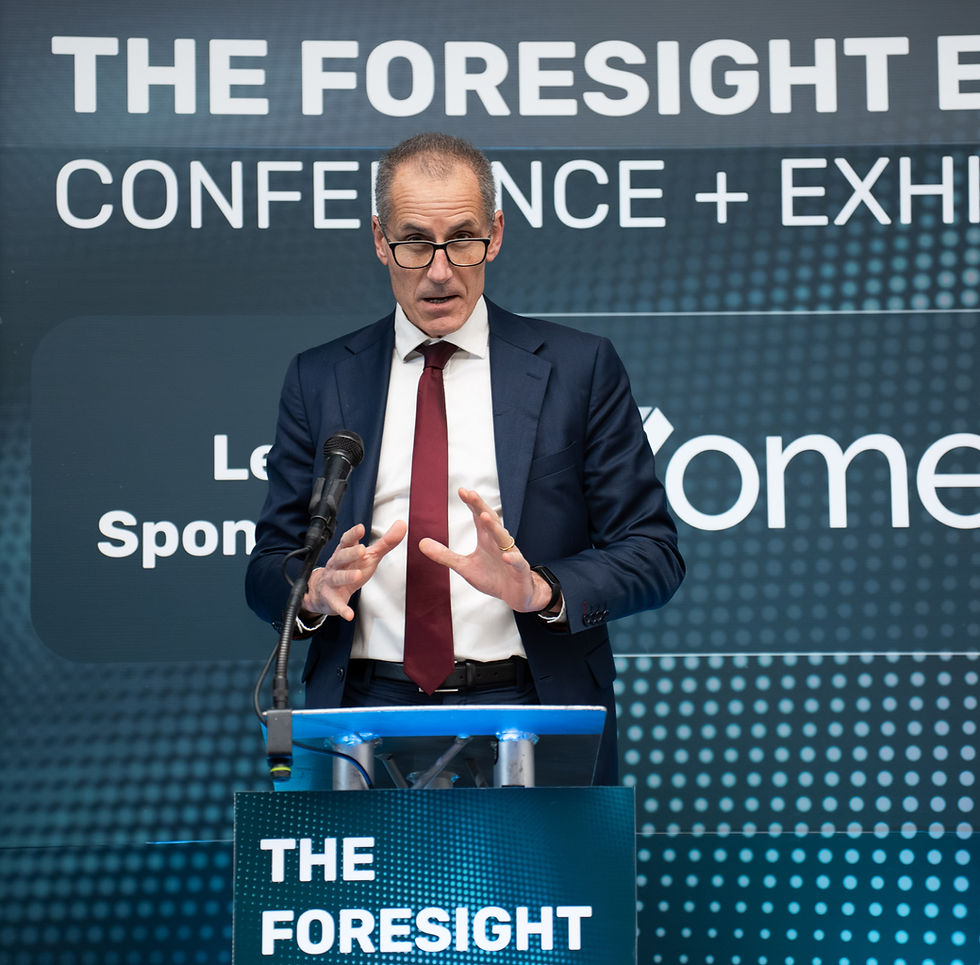Executive Summary: Foresight NetZero Live 2025
- Jun 17, 2025
- 2 min read

1. Industrial Decarbonisation & Competitiveness
The UK aims to cut industrial emissions by 80% by 2040, led by electrification, hydrogen, CCS, and efficiency.
However, UK industry is hindered by high energy costs, policy uncertainty, and fragmented regulatory frameworks.
Energy-intensive industries face declining competitiveness and risk of carbon leakage due to disproportionate pricing and policy burdens compared to global peers.
2. Building the Humber CO₂ Cluster
The Humber region emits ~20 million tonnes of CO₂ annually, with the potential to become a global decarbonisation hub.
Leading companies are advancing integrated hydrogen and CCS infrastructure, but require enabling policy, funding, and regulatory alignment to move forward.
Public-private collaboration and strategic planning across local, regional, and national levels were seen as vital to success.
3. Deployment and Innovation Pathways
Lessons from UK projects such as HyNet highlight the importance of long-term commitment, alliance-building, and targeted infrastructure.
Dispersed manufacturing sites, not connected to CCS clusters, require tailored electrification strategies and support mechanisms.
A regional hydrogen roadmap anticipates up to 40 TWh in demand and 7.5 million tonnes of CO₂ abatement, contingent on £15 billion investment.
4. Technologies & Partnerships Enabling Net Zero
Sectors like steel, cement, chemicals, and glass are deploying solutions such as green hydrogen, oxy-fuel combustion, and carbon capture.
Pilot facilities, industrial symbiosis, and co-location of infrastructure are helping de-risk technology adoption and reduce emissions.
Collaboration across value chains, supportive policies, and investor confidence are essential for scaling these solutions.
5. The Role of Industrial Electrification
Electrification is critical but under-supported relative to hydrogen and CCS.
Challenges include high electricity costs, grid constraints, and lack of targeted policy support.
Recommendations include reforming energy levies, improving grid access, and supporting SMEs with advisory services and incentives.
6. Emerging Solutions and Circular Economy
Presentations showcased innovative approaches such as methane pyrolysis, modular gasification, and advanced ceramics for net zero.
Circular economy principles are being embedded through steel recycling, biochar production, and regulatory tools like the Digital Product Passport.
Participants highlighted the need for better alignment between legislation and innovation, alongside stronger circular economy strategies.
The event underscored a significant gap between industrial decarbonisation ambitions and the existing policy and economic frameworks needed to deliver them. Speakers called for comprehensive reform in energy pricing, regulatory stability, and infrastructure investment to avoid deindustrialisation and enable the UK to lead the global low-carbon transition. Regional clusters like the Humber are ready to act, but require urgent, coordinated support to turn ambition into delivery.



